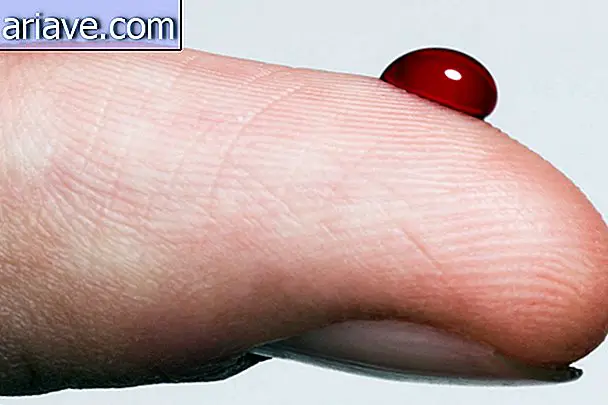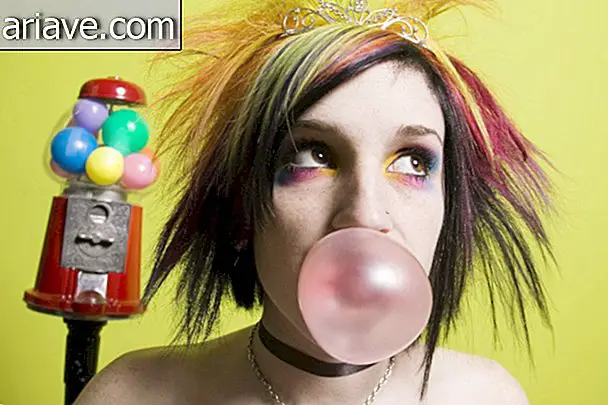How do some common medicines interact with alcohol?
If you like to enjoy a wine, a beer or a good drink of vodka, but for some condition you need to set aside this habit due to the use of medicines, be aware that avoiding mixing is really the best thing to do.
Even the most harmless of medications can act in conjunction with alcohol. So that little talk that a few sips don't hurt is out of the question. It is better to prevent. This is because the alcoholic substance may react with some ingredients of the medicine, making them less effective or even potentiating them in a way that can even be lethal.
For example, alcohol consumption can lower blood sugar levels, which leads to poor diabetes control. In addition, alcohol can still intensify the drowsiness effect of some medicines, making it risky to get behind the wheel or use dangerous machines.
"The danger of combining alcohol and some medications is real and sometimes fatal. It works in many unexpected ways to impact the effectiveness of a medication, " said Danya Qato, a pharmacist and doctoral student in health research at the University Brown in Providence (USA) to Live Science. Check out below how some common medications interact with alcohol:
1 - Antidepressants
This can be a very dangerous combination. With antidepressants, the concern with alcohol consumption is that they both slow down the central nervous system, which affects the brain and impairs thinking skills and alertness.
This combination can also make people feel drowsy, further reducing the time for skills judgment, coordination and reaction. Combining alcohol and antidepressants can also make the symptoms of depression worse.
“For people who take a certain class of antidepressants called monoamine oxidase inhibitors (MAOIs), it's best to avoid alcohol altogether. Alcohol can interact with these drugs and still cause a dangerous rise in blood pressure, ”said Danya Qato.
2 - Medicines for blood pressure and heart

According to the medical community, alcohol decreases the effect of beta blockers, medicines used by people who have had heart attacks or are being treated for heart failure, chest pain or an abnormal heart rhythm.
Therefore, experts recommend that people who use these drugs avoid drinking alcohol. For those taking angiotensin converting enzyme (ACE inhibitors) to control hypertension or treat heart attacks and strokes, alcohol can actually cause a sharp drop in blood pressure.
When blood pressure drops too much, a person may feel dizzy or lightheaded and may even faint. As alcohol aggravates the blood pressure lowering effects of ACE inhibitors, it is best to avoid drinking while using them.
3 - Cholesterol Lowering Medicines
Drinking from time to time, as long as it is moderate, does not alter the effectiveness of cholesterol-lowering drugs known as statins. But doctors see the problem when these drugs are used by people who have a history of alcoholism.
This is because liver damage is a potential side effect of long-term statin treatment, and statin use combined with frequent relapses from heavy drinkers can wipe out the organ altogether. The problem is that many liver ailments are unnoticed and hardly cause symptoms, which can lead to a late diagnosis that can be fatal.
4 - Diabetes Drugs

According to Danya Qato, people with diabetes should be aware that alcohol can cause low blood sugar levels not only after drinking but also up to 24 hours later, which can lead to dangerous side effects.
One such drug is metformin, which has been associated with a rare but potentially serious side effect when taken by someone who has drunk excessively. This increases the risk of lactic acidosis, which causes an accumulation of lactic acid in the blood and can lead to symptoms such as nausea and weakness.
Drugs used to treat diabetes, such as glimepiride and other sulfonylureas, may also occasionally interact with alcohol and cause dizziness, nausea, and extremely low blood glucose levels, which can lead to fainting and even death if the person is not rescued in time.
5 - Gastroesophageal reflux drugs and ulcer
Although those with problems like heartburn can drink moderately without much effect, large amounts of alcohol can relax the muscle between the stomach and esophagus, increasing acid reflux. This can produce a burning sensation in the upper chest and a bitter taste in the mouth.
For those with ulcers, the problem may get even worse and the stomach wall injury may even get bigger and worse, inhibiting the action of the medicine.
Alcohol can irritate and corrode the lining of the stomach and esophagus, increasing the amount of acid. Therefore, doctors advise people who have ulcers to avoid the drink, as it aggravates the acidity, preventing the medication used to help heal the injury faster.
6 - Painkillers

While moderate drinking combined with common painkillers with aspirin and ibuprofen is generally safe (excess may irritate the stomach wall), the use of other alcohol-prescribed pain medications may be dangerous.
In the case of paracetamol, sporadic moderate alcohol use is not harmful, but chronic consumption of both substances can cause irreversible liver damage.
The biggest problem is controlled opioid drugs, such as Vicodin (the hydrocodone, which is not marketed in Brazil and was the weak point of the main character of the House series) and OxyContin. Alcohol can increase the sedative side effects of these narcotics, thereby increasing fatigue and causing blood pressure to fall.
Combining alcohol with these medications can also impair thinking and motor skills, leading to respiratory problems. Every year, many serious - and sometimes fatal - overdoses are caused by the mixture of alcohol and these drugs in the United States.
7 - Sleeping pills
Alcohol can increase the sedative effects of sleeping pills, depressing parts of the brain and causing severe drowsiness and dizziness, which can increase the risk of falls, injuries and car accidents.
Drinking too much while taking sleeping pills can lower blood pressure to extremely low levels, causing breathing difficulty. If you drink and use this type of medication, try to wait at least six hours before taking it in order to keep alcohol away from your bedtime.
* Posted on 10/13/2014











